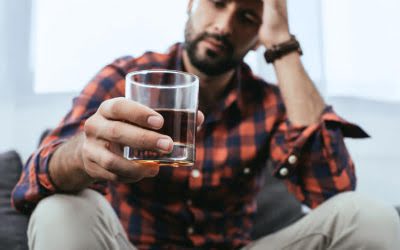The skills you developed, the insights you gained, and the strength you built during your sober time stay with you. Think of recovery like building a house – a storm might damage some walls, but the foundation remains intact. Each recovery attempt builds upon this foundation, making it stronger and more resilient.
SUBSTANCE ABUSE
Contact the caring specialists at Blue Star Recovery today to discover our high-quality, comprehensive i relapsed now what treatment programs. You may also contact us to ask questions or schedule an intake appointment. Knowing how to move forward afterward is also critical.
QUALIFIED EXPERIENCE
Another immediate need you should fulfill following a relapse is a safe living environment. If your living arrangements are neither safe nor conducive to recovery, please consider alternative arrangements. It may not be easy to anticipate or prevent these causes in the future, but it is important to monitor one’s behavior and thoughts. It is essential to understand the various roots of a relapse since it can help you understand why it has occurred, to begin with.
- Conversely, up to 80% of patients who only detox will relapse.
- Think about the thoughts, feelings, and behaviors that came before the relapse.
- Reach out to those who can help you through these tough times.
- “A slip is an error in learning… (People) who recover from habits they want to change treat slips very differently.
What is Relapse Under a Harm-Reductive Model?
- The first thing in your mind after a relapse should be to not go into a “binge mode” because it is very common.
- Various factors, including stress, triggers, and underlying emotional issues, can contribute to relapse.
- Remember, for recovery after a mental relapse, the most important thing is getting back up and continuing with the recovery journey.
It’s vital to approach Drug rehabilitation this situation with self-compassion and understanding. Relapse does not mean failure; it’s a hurdle in the journey of recovery. Practice kindness with yourself and recognize that recovery is a process with ups and downs. Avoid self-blame and instead focus on what you can learn from this experience.

An emotional relapse is the first stage of relapse. People may experience uncomfortable emotions during an emotional relapse. They may be experiencing stress that overwhelms their http://www.newvisiondental.co.za/dev/psychedelic-therapy-for-addiction-recovery-new/ coping abilities. No matter what, you’ve proven that you can do this. Relapse is a setback and a learning experience to get better through your addiction recovery process. For example, you might be drinking instead of using illicit drugs.
- This pattern of sobriety followed by relapse can stop.
- Obviously, the main thing you want to do is get sober, stay sober, and reduce the chance of a relapse.
- With the right resources and strategies, you can navigate this difficult time and continue toward healing and recovery.
- We work with licensed professionals in mental health and substance use disorder treatment to provide up-to-date information that you can trust.

A physical relapse occurs when a person goes back to using the substances after a period of sobriety. But before a physical relapse happens, there are other types of relapses usually precede the physical relapse where a person begins using alcohol or substances again. Reach out to a trusted loved one, substance abuse professional, or medical professional. Talking about your relapse can relieve some of the guilt, anxiety, or other feelings you have about it. It may cause people to feel frustrated, angry, or hopeless. However, a relapse can highlight where you need more support and treatment.
After a relapse, you’re probably gonna feel a dip in motivation to exercise. This method of recovering from a nofap relapse has worked wonders for me and I’m sure it can do the same for you. Get your copy of “So You Relapsed, Now What?” and take the first step toward a brighter future. Remember that others in your community have relapsed and yet, they still achieved their long-term goal of abstinence. Meanwhile, research shows that acceptance and compassion can significantly reduce the risk of prolonged relapse.
Get Help for Addiction Relapse
You can discuss trigger situations with your therapist and rehearse strategies to deal with them. Many people think preventing a relapse means just saying “no” to a drink. But by the time you’re looking at a can of beer or a bottle of liquor, you’re in the last and most difficult stage of a relapse.

There are numerous resources available for individuals dealing with self-harm relapses. These include helplines like the National Self-Harm Network and online forums such as RecoverYourLife. In addition, therapeutic services like cognitive-behavioral therapy or dialectical behavior therapy can provide professional support and guidance. It is also not an excuse to continue on a road of negativity and destruction. Relapses are an opportunity to learn more about yourself and your disease.
The nature of the disease of addiction means that there are no guarantees. In fact, resuming drug use after a period of sobriety greatly increases the likelihood of a fatal overdose. This what happened in the tragic deaths of actors Cory Monteith and Philip Seymour Hoffman. Addiction relapse is a challenging and emotional experience but it does not have to define your recovery journey.
You need to encourage your loved ones every day to quit drug use. Feelings of guilt and hopelessness are normal after slipping up. Learning how to process these feelings will help you prevent the next relapse.